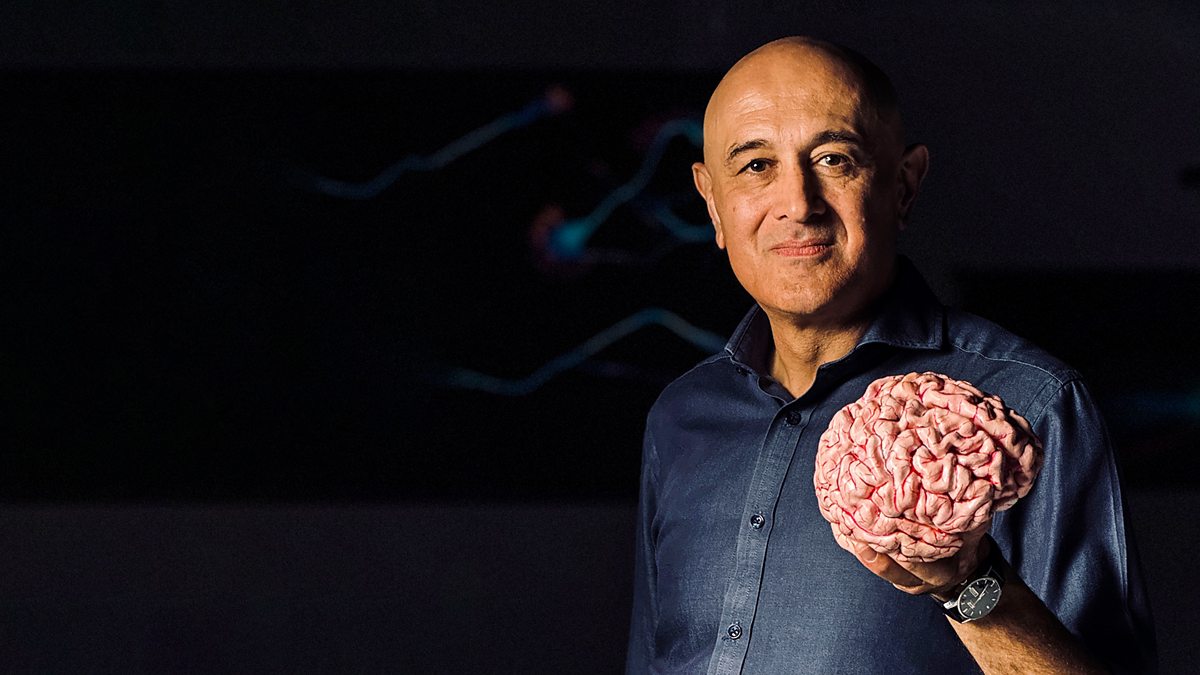On a chilly Monday evening, September 22nd, families and individuals from around Sussex gathered in the Fulton Building for the exclusive pre-screening of a brand-new BBC Two Horizon episode – part of the science documentary series that has aired since 1964. The 60-minute film, entitled Secrets of the Brain, follows quantum physicist and science communicator Jim Al-Khalili as he takes the audience on a compelling journey through the evolution of one of the most elusive yet fascinating organs of living creatures: the brain.
The journey began nearly 600 million years ago with ancient anthropods, the first species to show signs of a brain. Even then, there were already some primitive signs of functional segregation in the brain, although the frontal region of their brain, precursor to the human prefrontal cortex, was tiny and underdeveloped.
Al-Khalili then brings us into the world of primates, our close evolutionary relatives, by visiting various UK zoos. Researchers working there unravel how different monkey species approach an abstract task can offer clues about where they fit on the evolutionary timeline. More recent species demonstrate stronger problem-solving capabilities than their earlier counterparts, revealing how cognition evolved alongside the brain structure.
Al-Khalili then joins University of Sussex’s Professor Gilly Forrester in the zoo where she and her team observe closely how chimpanzees, gorillas, and orangutans live, interact, and navigate puzzles. Forrester is the science consultant of this documentary, and also an expert in apes’ behaviours. Her research has offered some evidence of primate intelligence. What’s more, in the post-screening discussion, she added, “chimpanzees often outperform humans in specific spatial tasks – those linked to fruit-finding behaviours in the wild!”
One of the most fascinating segments of the film shows Al-Khalili attempting to replicate the stone tool-making practices of early humans. Although it may look simple, making a sharp tool from a large rock demands coordination of multiple cognitive processes – robust evidence demonstrating that our ancestors had already acquired complex cognitive capacities, more than we tend to think.
The final part of the documentary focuses on modern humans. Here, Al-Khalili observes that the most significant evolution in humans is the social evolution. “Perhaps being in community is the final stage of evolution”, said Al-Khalili. Living in groups has rewired our brains to be socially adaptive – that includes being especially skilled at solving social problems.
In an on-screen experiment, he invites members of the audience to play a logic game: they are presented with four face-down cards and asked to reveal two cards to deduce the values of all four cards correctly. Most people struggle. Yet, interestingly, when the same task is reframed using social contexts, nearly everybody succeeds. This experiment highlights how our brain is wired more for social than abstract reasoning – a characteristic that supports cooperation and group cohesion.
In addition to social reasoning, humans have also evolved to be social animals, requiring social connections for our health and well-being. In a conversation with Robin Dunbar, an anthropologist in social bonding, Al-Khalili recalls the well-known research showing that the most predictive factor of health in later life is the number and quality of close friendships. However, that does not mean that we should go around and look for closer friends. In fact, Dunbar has famously coined the “Dunbar’s Number”, indicating that a typical person at any given time can only maintain a maximum of 150 stable social relationships!
Throughout the screening, the audience got immersed in a journey of awe and joy. These feelings continued to prevail in the panel discussion, as Smith and Forrester shared insights into the making of the documentary. They recalled countless hours spent rewriting scripts and refining scenes to the challenges of filming with primates. These behind-the-scenes are a testament to the tremendous effort poured into making this story of the human brain as compelling as possible.
Two years in the making, Secrets of the Brain offers a poignant and accessible exploration of how our brains became what they are today. While it is not a complete account of everything we know about the brain, it is a well-crafted summary that leaves the audience in renewed awe and appreciation for this marvellous organ.
Another article you may enjoy: https://thebadgeronline.com/2025/11/the-anxious-generation/

